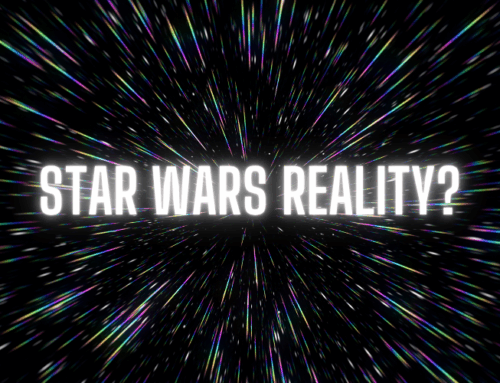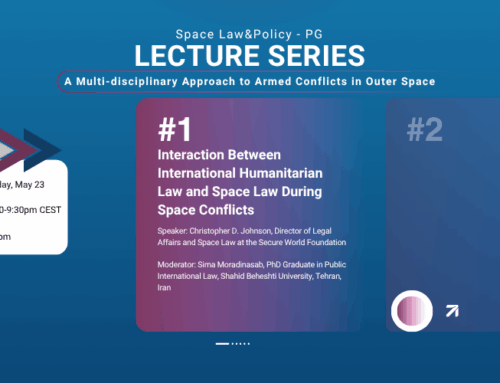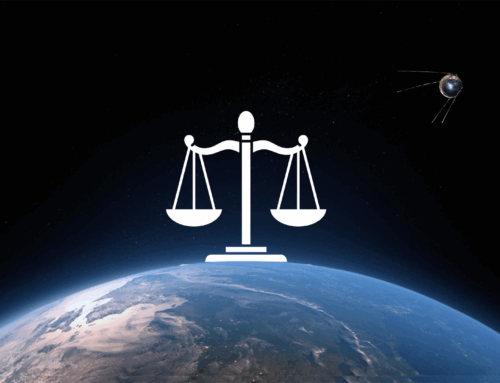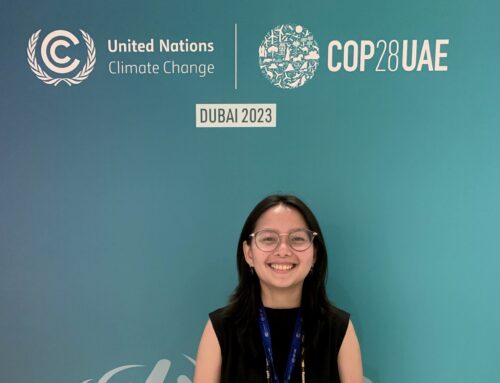Welcome to the new blog of the SGAC Space Law and Policy Project Group! On 15 January 2021, members of the SGAC Space Law and Policy Project Group interviewed one of the group founders, Christopher Johnson, who is now an accomplished space law advisor at the Secure World Foundation (SWF) and a space law educator at Georgetown Law and the International Space University. The following is an abridged write up of his career path, reasons for creating the group, its development, and advice for younger generation of space lawyers.

- Broadly, what do you do for work now?
SWF is a non-governmental organization (NGO) focused on peaceful uses of outer space, space sustainability, and the use of space for human and environmental security on Earth. As an NGO, we do not represent the views of States or commercial industry. As a non-profit organization as well, we hopefully represent the views of civil society.
It’s a strange field to work in international law and governance of space and to not be a member state, but often smaller actors can have a disproportionately large effect because they can suggest things that major powers can’t. Those major powers are in complex ongoing relationships with other states, whereas civil society can offer something new.
- What did your early career path look like?
I started in New York City as a corporate lawyer, but I didn’t find it very fulfilling. I was a bit of a hired gun for corporations and once I realized that I wanted to do: something that I felt was worthwhile. I think that’s what brings people to the space industry.
I was working in the building next door to the New York Stock Exchange during the crash of 2007/2008 and it seemed like a different universe of people to those concerned with outer space. I didn’t take international law at law school. I took corporate security law and I was interested in regulation of the corporate field. So, I had to learn more about space, then I read a dozen or so pages on aviation and space law after I took some evening classes in international law.
I took the train down to Washington DC and I went to the Eilene M Galloway Symposium that happens every year at the Cosmos Club. Eilene Galloway was one of the founders of space law, and certainly in America one of the most important actors in its early creation. She helped write the 1958 NASA Act and many of its phrases (eg the province of mankind, international cooperation) were transposed into the 1963 Principles Declaration. Anyway, I went to that symposium and I actually met working space lawyers. I said to myself, “I think I should try to do this with my life”.
I met Tanja Masson-Zwaan, the Deputy Director of the International Institute of Air and Space Law at Leiden University. I just saw this path opening up. There was no one in NYC that understood when I said “I think I’m going to try and be a space lawyer.” It sounds totally nuts to people that work in finance and at law firms. But, I did that LLM program in Air and Space Law at Leiden University and Tanja helped me get an internship at UNOOSA in Vienna during the 2010 COPUOS plenary session in the summer.
That internship was super interesting because I actually got to see the views, interests, and tensions between State on topics of space activity, what they really care about. I also got to see how the UN acts as a coordinator of discussions on space activities. I later worked at NASA Headquarters, and then I went to the International Space University.
- When did you create the Space Law and Policy Project Group? What was your vision for it?
SGAC is an observer at COPUOS. I met them and they weren’t very involved in law at the time, but their persona and engagement with what happens at COPUOS was incredibly professional. I was very impressed by that and I went to Space Generation Congress in Prague, where I met a few other space lawyers. We decided to put together a proposal to start a space law working group.
We very quickly saw the group grow and it was taken over by Lauren Napier and Thomas Cheney, who did an excellent job running it and keeping it alive. Lauren also expanded it from space law to space law and policy, which was a good step. Law is a menu of things you can do; policy is decisions on the best things to do.
As for the vision, you have people that want to work in space law and the path to a job is uncertain. The space industry hasn’t quite figured out that they need policy people, lawyers, historians, economists, etc. So, the goal wasn’t just to talk about space law but also to work in the field. We wanted to give people a platform where they are thinking about space continually, they meet people who work in the field, and they become known so they can get a job.
Equally along with that, discussions at COPUOS should have the next generation represented. The kids at the SGAC desk are the only people that will still be around years from now under the rules that are being discussed. Space has a long timeline from writing rules to them coming into effect.
- What is your advice for those hoping to work in space law and policy?
I definitely remember being in the position of doing unpaid internships and having no idea if a career in space law was going to work out. If you want to work in the space law field, you cannot predict where you’ll get a job. You have to go wherever there’s an opportunity to stay in the field and/or an opportunity to learn something. Nobody really gets offered their dream job, but they get offered something that may lead them to something else. So just go and do it. You’ll build your network and learn more that will pay off later. Don’t feel defeated, because if you keep going and building your network, before you know it you will have taken over the space law field. And when you see opportunities, share them with everyone else. You may not be interested or have the time, but somebody else might.
Advice from people who lead agencies, found companies, or who are 20-30 years into their career tends to be “follow your dreams and everything will work out”, but you don’t need that advice. They can’t help you because they don’t remember what it’s like to be desperate for a job and uncertain about your future. You need advice from people who are 5 years older than you, because they can give you practical tips on how to actually do things.
- What are key topics that you think we, as the younger generation, should focus on?
Space debris and salvage rights. This is a really good mix of law and policy. There are policy aspects: Who should be doing it? How can we structure the salvage industry? What does coordination look like? Who are the stakeholders? How do we engineer a good mission? Then there are legal issues of ownership, jurisdiction and control, risk sharing, what contracts would look like, etc. We need to remove space debris, and some of it we may just throw back at Earth and have it burn up in the atmosphere, but can we use some of it for other purposes? Can we use it to manufacture in space? These are pressing and near-term issues.
Mega-constellations are another issue, such as their impact on ground-based astronomy and on other uses of the space domain. If you put them all in low Earth Orbit, does that destabilize what happens in Geostationary Equatorial Orbit? There are questions on law, coordination, frequency, liability, non-appropriation, etc. Ground-based astronomy is space exploration, and as space exploration it is protected by Article I of the Outer Space Treaty as a freedom. So, these are tough questions because you have competing legitimate uses of the space domain.
- What is your advice for the project group going forward?
Delegate, plan in advance and structure your work together. You have the opportunities to produce documents like conference room papers for COPUOS or submit articles to journals. You can produce resources for free and thanklessly, but they are greatly useful. The SWF Handbook for New Actors in Space is an example of a great way to assist people, but also influence them and get your name out there. That is the role of civil society, and as students or young professionals within SGAC, you have the time and the ambition to do it. No one is waiting for you to do that. No one is asking for you to do that, but that shouldn’t stop you. Look at the rest of SGAC and the other Project Groups, discuss with them, and on whether there is an opportunity for joint activities, set a meeting up and ideas are going to bubble.






